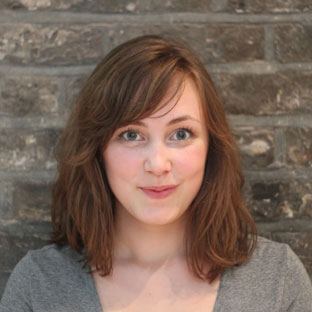Last Tuesday we pulled together a group of Fellows, on-the-ground practitioners and experts to discuss public health in the context of being people-powered.
Three speakers set the scene: Susie Pascoe, Head of Whole Person Recovery at the RSA, explored what we’ve done to create a service based around the needs of users and service providers on the ground; Charlotte Alldritt, Director of Public Services and Communities, explained some of the work she’s doing with data as well as an introduction to our area of work.
Finally, Roger Taylor FRSA, Co-Founder of Dr Forster and Author of God Bless the NHS, highlighted three areas challenging health at the moment: Unreliability in the system; lack of patient-centricity; and the unsustainability of the current financial model – and outlined how people-powered health can begin to challenge some of these.
Each table of Fellows and invited experts then put their collective heads together to discuss their concerns, opinions and experiences in health and wellbeing, and came up with some key questions or comments:
‘People-powered’ raises more questions than it answers as a term. It implies that people either aren’t in control of their health at the moment, or that it makes people more than fairly responsible for things they shouldn't have to be responsible for – and doesn’t explain how people-powered breaks down on different levels: individual, family, community, state
There’s a clash between localism and having a national standard which means we don’t end up in postcode lottery. If – hypothetically – East Sussex prioritised healthcare based on its slightly older population, would that mean that swathes of younger people move to somewhere where they’re more likely to get the care they and their young families need?
Limiting healthcare to the NHS restricts the quality of discussion and interventions. There were perceptions from the tables that the NHS is primarily for intervention, whereas healthcare fit for a 21st Century is far more focused on prevention – and relies on a cross-collaborative method of care and wellbeing – health is about more than fixing an ill person.
Delivery of healthcare is often challenged through how the system works - including how people work, how empowered they feel to work, and the command/control culture. People-powered health could be the ability of practitioners to engage much more immediately with more autonomy with people who are within the system or at the start of the system.
People view public services now through a consumerist eye, so expect to get something much more tailored to their needs. This poses a problem in the healthcare sector: we're all individuals but we all use the same services (albeit in different ways) – so how do we get an individual system that can be scaled up or delivered en masse?
How does a system dependent on data work when people are nervous of handing over their data? Some of the best models rely on quite intricate levels of data – either self-reported or tracked in other ways. If it’s self-reported, how can doctors rely on it as evidence? There’s a lack of clarity whether people definitely want to be a part of this big data revolution or not – and more evidence needed of a robust and well-worked system.
(As an aside, on the topic of data my colleague Charlotte has been doing work analysing public services data that’s well worth a read.)
In conclusion, asking the right question is critically important. In this case, what become very apparent was that the health isn’t limited to the NHS, and people felt that people power might be the solution to particular problems – but to avoid it being a catch all for the entire domain of health at large.
Our research projects are self-funded through grants and bids, so whilst this is something we want to develop as a programme of work, we have limitations. We have links to lots of funders in the sector, but if you know of any with current particular interest in the areas covered we'd be interested in working together or starting a conversations.
To find out more about our work in healthcare let Joanna Massie, Project Engagement Manager, know. Similarly, if you know of any Fellows who are running projects or looking to address some of the issues or conversations that people-powered healthcare raises, please get in touch.
Do you agree with the concerns raised, or have something you’d like to challenge? We’d be interested to hear: please comment below. For context, also watch the follow-on event, The Great health Think-off.
Joanna is Project Engagement Manager, working to connect Fellows with the RSA’s research in Public Services and Communities. Email her or follow her on Twitter at @joannacmassie
Related articles
-
Prosperous Places: creating thriving communities
Tom Stratton
With regional growth at the top of the agenda, it is vital that we create thriving communities across economic, social and natural perspectives. Prosperous Places is a suite of interventions aimed at responding to the unique ambitions and challenges of places.
-
Pride interview: Felipe Tozzato
Deborah Ajia
The commercial photographer and RSA Fellow explains what Pride means to him, the importance of courage, making friends through rugby and why being gay is his superpower.
-
Let's smash the Rainbow Ceiling
Ben Oliver
Reflecting on Layla McCay’s recent RSA talk, Ben Oliver offers five ways for employers to create a positive culture for their LGBTQ+ staff that benefits both the individual and the organisation.




Be the first to write a comment
Comments
Please login to post a comment or reply
Don't have an account? Click here to register.